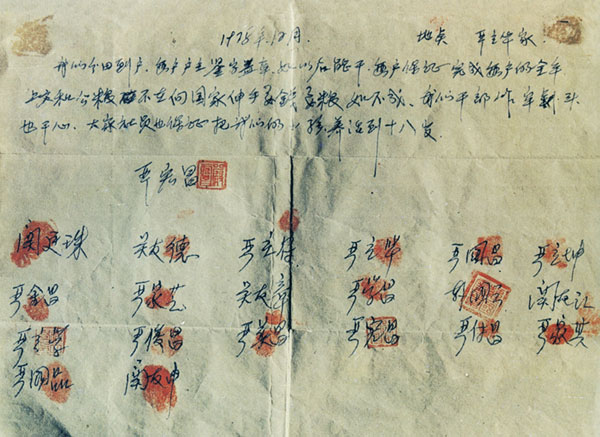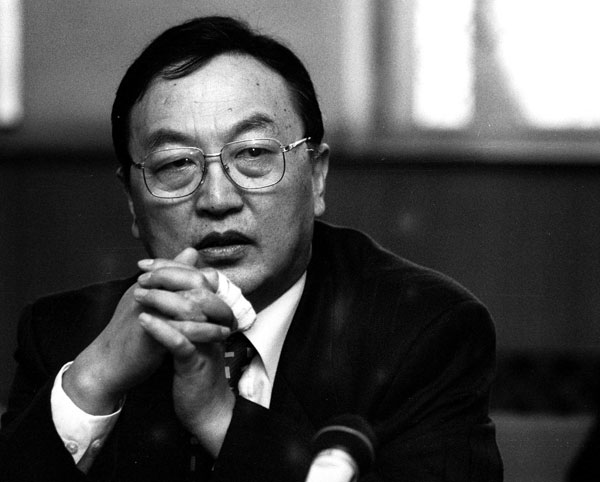Setting a blueprint for the future
The history and significance of third Plenary Sessions since 1978
1978 12.18-12.22
11th CPC Central Committee reform and opening-up policy Unveiled
The most frequently talked about third plenary session, and probably the most important of all. It marked the start the China's reform and opening-up policy as the Party shifted its work focus from class struggle to economic construction. The session engaged in serious discussion about major political events during the "cultural revolution" (1966-76) and a number of questions left over from an earlier period.
1978.11.24
Eighteen farmers in Xiaogang village, Anhui province, signed a secret agreement to divide the land of the local People's Commune into family plots. According to the agreement (shown below), the farmers would turn some of their crops over to the government and keep the surplus for themselves. They also agreed that if one of them was caught and sentenced to death - the practice was against the law at the time - the others would raise the dead man's children until they were 18. However, the model was later approved by Deng Xiaoping and implemented nationwide.

1979.1.1
China and the United States officially re-established diplomatic ties. The move was followed by an eight-day official US trip by Deng Xiaoping.
1979.1
Coca-Cola re-entered the Chinese mainland. The company had pulled out before 1949.
1980.5.1
The Shenzhen Special Economic Zone was established, providing preferential policies for foreign investment. Since then, what was once a small village bordering Hong Kong has grown to become the Chinese mainland's fourth-largest city in terms of GDP.
1984 10.20
12th CPC Central Committee
Reform moves from the countryside to the cities
The long-held concept that a planned economy is in direct opposition to a commodity-based economy was abandoned. The plenum declared that a socialist planned economy is a planned commodity economy based on a system of public ownership.
1984
 |
|
Liu Chuanzhi, former CEO, Lenovo |
The year has been dubbed, "The first year of China's modern corporations". Vanke, the country's largest residential real estate developer, and Lenovo, the world's second-largest personal computer vendor by unit sales, were established.
1984.11.14
The Shanghai-based Feile Audio-Visual Co became the first Chinese mainland company to issue stock to the public since 1949. The company issued 10,000 shares at a nominal value of 50 yuan ($8.20) each.
1987.12.1
New China's first land auction was held in Shenzhen. Thirty-four companies bid for the land. The winning bid was 5.25 million yuan.
1988
Price reforms led to inflation and panic-buying in cities. Under the two-tier system in place at the time, some goods were sold at controlled prices while others were sold at the market price. The reform - the liberalization of prices to bring them into line with market values - was then scaled down.
|
|
|
|
|
|
|
|
